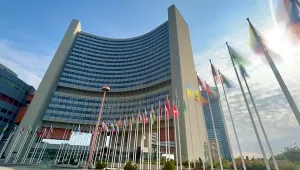Taking the Initiative: A Practical Mechanism to Prevent WMD Proliferation
In response to growing concern over weapons of mass destruction (WMD) proliferation, the Bush administration launched the controversial Proliferation Security Initiative (PSI) in 2003 with 11 core states. Now, five years later, the PSI boasts participation from over 80 states.
This presentation will explore the evolution of the PSI, its structure, reasons for states' participation or nonparticipation, and arguments for and against it becoming more formally tied to other instruments of the nonproliferation regime.
Please join us! Coffee and tea provided. Everyone is welcome, but admittance will be on a first come–first served basis.




